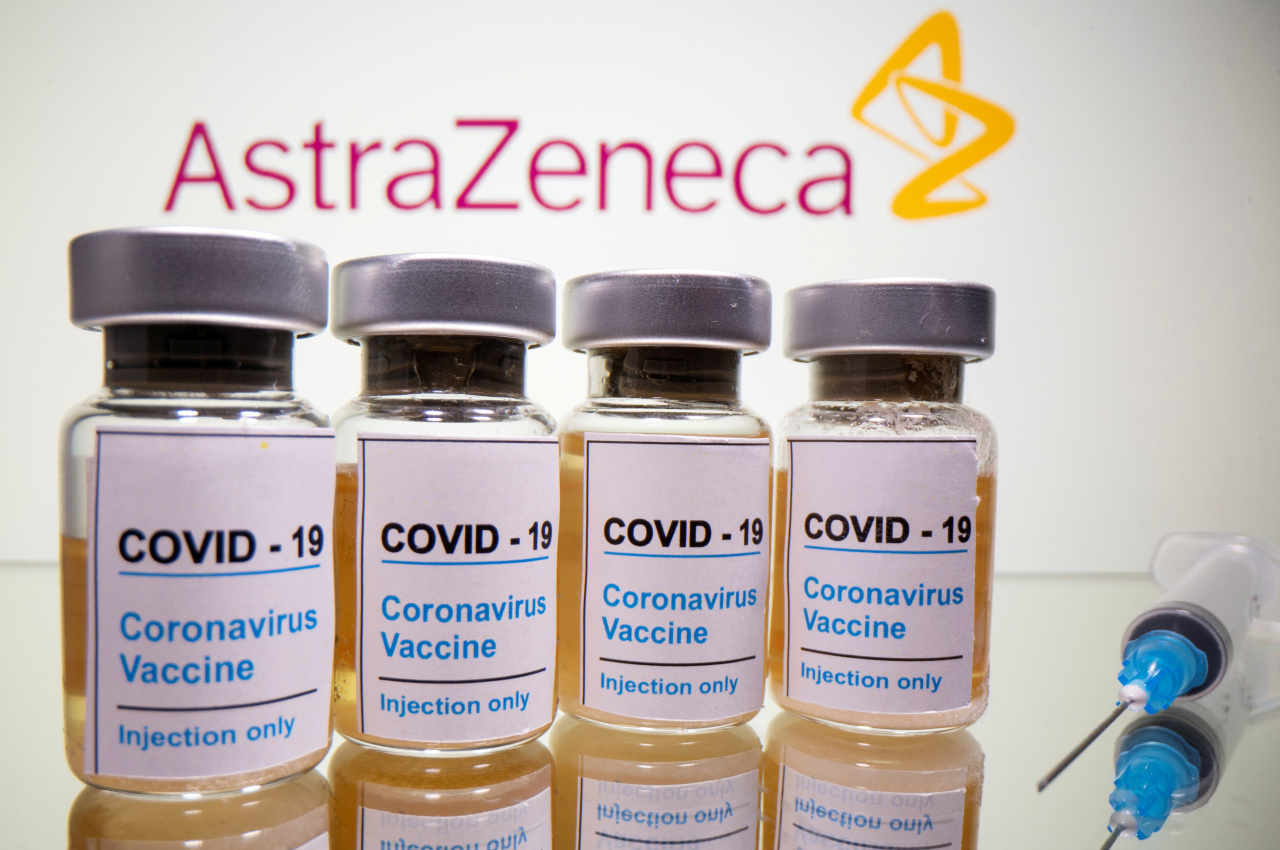 |
Vials with a sticker reading, "COVID-19 / Coronavirus vaccine / Injection only" and a medical syringe are seen in front of a displayed AstraZeneca logo in this illustration taken October 31, 2020. (Yonhap-Reuters) |
A medical worker in her 20s developed blood clots in the lungs and a leg after getting a first dose of AstraZeneca’s COVID-19 vaccine, Korean health authorities said Wednesday.
The Korea Disease Control and Prevention Agency told reporters in a closed door briefing that the previously healthy woman started experiencing breathlessness roughly 12 days after she was inoculated with the AstraZeneca shot on March 17.
She was diagnosed with pulmonary embolism, or blood clots in the lung, and later also with deep-vein thrombosis in one of her legs. She is being treated with anticoagulants and recovering, the agency said.
The woman is the third person to have developed blood clots among AstraZeneca vaccine recipients in the country. Two of them are in their 20s.
A paramedic in his 20s came down with a rare form of blood clots in the brain called cerebral venous sinus thrombosis about two weeks since getting his first shot. The agency doesn’t know what triggered the condition in the young man, who has no preexisting conditions or family history of the disease.
A nursing home resident in her early 60s who died eight days following vaccination had blood clots in her leg, post-mortem examinations revealed. The agency concluded that the vaccine did not cause her death nor the formation of blood clots.
The agency said AstraZeneca vaccinations here would continue for all age groups for the time being, but that there might be some adjustments depending on findings from the European Medicines Agency slated for release later this week.
The known instances of blood clots in Korea, excluding the 60-something woman, are out of more than 800,000 people who have been given at least a first dose of the vaccine. As the specific clotting condition in the brain is highly unusual, this is slightly higher than the naturally occurring rate.
Korea’s mass vaccination program, which was rolled out in April, targets essential professions such as early childhood educators, flight attendants and nurses working outside of coronavirus wards. The sectors are mostly dominated by young women.
More than two-thirds of the blood clotting events have been in women in ages 55 or younger. Countries like France, Canada and Germany are limiting the vaccine’s use for older populations only.
The agency said people who are eligible for vaccinations now are free to refuse the shots, but that their next turn would be pushed back to after November in such cases.
By Kim Arin (
arin@heraldcorp.com)








